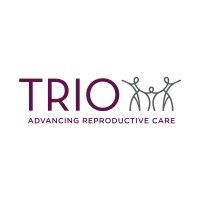预约演示
更新于:2025-05-07
Gynatresia
阴道闭锁
更新于:2025-05-07
基本信息
别名 AMENORRHEA TRAUMATICA、ASHERMAN SYNDROME、Amenorrhea traumatica + [41] |
简介 Absence of a normal opening in the lumen of the female genital tract, from the FALLOPIAN TUBES to the VAGINA. This anomaly may be congenital or acquired due to injuries, diseases, or TISSUE ADHESIONS. |
关联
1
项与 阴道闭锁 相关的药物靶点- |
作用机制 干细胞替代物 |
在研机构 |
原研机构 |
最高研发阶段临床1/2期 |
首次获批国家/地区- |
首次获批日期1800-01-20 |
61
项与 阴道闭锁 相关的临床试验IRCT20091012002576N49
Comparisons the effect of hyaluronic acid injection in prevention of adhesions after hysteroscopy septoplasty
开始日期2024-10-22 |
NCT06450301
Is Thin Endometrial Lining Associated with Senescent Endometrial Cells
The goal of this observational study is to determine if thin endometrial lining that is unresponsive to estrogen might be associated with the presence of senescent cells in patients following long-term use of oral contraceptives. The main question it aims to answer is:
Are there any senescent cells present in thin endometrial lining?
During the luteal phase of the cycle, participants will will undergo:
* Gynecologic US to measure the endometrial lining thickness and pattern.
* Endometrial biopsy with Pipelle catheter
Are there any senescent cells present in thin endometrial lining?
During the luteal phase of the cycle, participants will will undergo:
* Gynecologic US to measure the endometrial lining thickness and pattern.
* Endometrial biopsy with Pipelle catheter
开始日期2024-09-11 |
申办/合作机构 |
IRCT20091012002576N42
Investigating the effect of hyaluronic acid injection in eliminating adhesions in hysteroscopy of patients withAsherman's syndrome
开始日期2024-07-22 |
100 项与 阴道闭锁 相关的临床结果
登录后查看更多信息
100 项与 阴道闭锁 相关的转化医学
登录后查看更多信息
0 项与 阴道闭锁 相关的专利(医药)
登录后查看更多信息
714
项与 阴道闭锁 相关的文献(医药)2025-12-31·Annals of Medicine
Visualized hysteroscopic artificial intelligence fertility assessment system for endometrial injury: an image-deep-learning study
Article
作者: Chen, Hui ; Li, Bohan ; Duan, Hua
2025-12-01·Seminars in Immunopathology
Mechanistic insights into intrauterine adhesions
Review
作者: Hu, Yali ; Zhao, Guangfeng
2025-06-01·Regenerative Therapy
Novel therapeutic strategies for Asherman's syndrome: Endometrial regeneration using menstrual blood-derived stem cells
Review
作者: Kishi, Hiroshi ; Okamoto, Aikou ; Yokomizo, Ryo ; Awano-Kim, Sena ; Hosoya, Satoshi
1
项与 阴道闭锁 相关的新闻(医药)2022-12-02
BEDFORD, Mass., Dec. 2, 2022 /PRNewswire/ -- Rejoni, a privately held medical technology company designing and developing hydrogels to improve the standard of care in Women's Health, announced today that it has begun enrollment of patients in the Juveena Hydrogel System Pivotal Study. The Juveena Hydrogel System is being developed for use as a temporary intrauterine implant to prevent the intrauterine adhesions (IUA) that can form inside the uterine cavity following transcervical gynecological procedures.
Continue Reading
Dr. David Grainger, board-certified physician in obstetrics and gynecology at Wesley Healthcare in Wichita, KS, enrolled the first patient and Dr. Kelly Roy from Arizona Gynecology Consultants in Phoenix, AZ has begun treating patients as well. "I am honored to have been chosen to participate in the Juveena clinical trial for evaluating the use of the hydrogel to reduce adhesions in the uterus," said Dr. Roy. "I look forward to evaluating this technology as we work to reduce intrauterine adhesions and the impactful consequences they place on our patients."
As many as 40% of women who have had some type of surgical procedure inside the uterus develop Asherman's Syndrome.
Tweet this
Commonly referred to as "Asherman's Syndrome", IUAs are bands of fibrous tissue that form in the uterus, often in response to a uterine procedure. As many as 40% of women who have had some type of surgical procedure inside the uterus develop Asherman's Syndrome. The thicker the bands of scar tissue, the more they can cause the uterine cavity to narrow, resulting in pain, skipped, sparse or absent menstrual periods as well as recurring pregnancy loss and other pregnancy complications.
The Juveena Hydrogel is instilled using a thin flexible catheter into the uterus directly after intrauterine surgery to fill the uterus, keeping the walls of the uterus apart during the healing process to prevent IUA from forming. The material is designed to remain in place for a few weeks while healing occurs and then naturally liquefy and leave the body.
"At Rejoni we aim to use our absorbable hydrogel technology to guide healing and recovery after surgical procedures. The Juveena Hydrogel System is the first product designed for intrauterine adhesion prevention to enter clinical trials in the United States. If approved by the FDA, it will bring much needed relief to many women who suffer from adhesions and have to undergo repeated surgeries" remarked Amar Sawhney PhD, CEO of Rejoni.
About Rejoni, Inc:
Rejoni, Inc. is a privately held company based in Bedford, MA focused on the development and commercialization of products for gynecological surgery using its proprietary biomaterials. The company, founded in June 2020, is the latest by serial entrepreneur Dr. Amar Sawhney who also founded Confluent Surgical, Ocular Therapeutix, Access Closure, and Augmenix, Inc. More information about Rejoni can be found at
SOURCE Rejoni, Inc.
分析
对领域进行一次全面的分析。
登录
或

生物医药百科问答
全新生物医药AI Agent 覆盖科研全链路,让突破性发现快人一步
立即开始免费试用!
智慧芽新药情报库是智慧芽专为生命科学人士构建的基于AI的创新药情报平台,助您全方位提升您的研发与决策效率。
立即开始数据试用!
智慧芽新药库数据也通过智慧芽数据服务平台,以API或者数据包形式对外开放,助您更加充分利用智慧芽新药情报信息。
生物序列数据库
生物药研发创新
免费使用
化学结构数据库
小分子化药研发创新
免费使用


